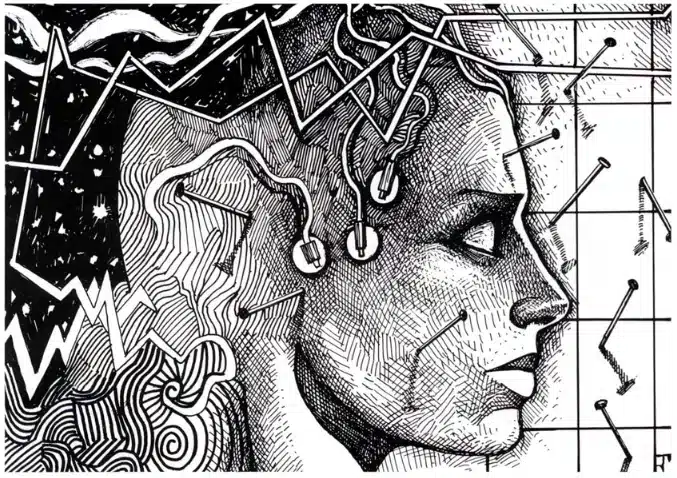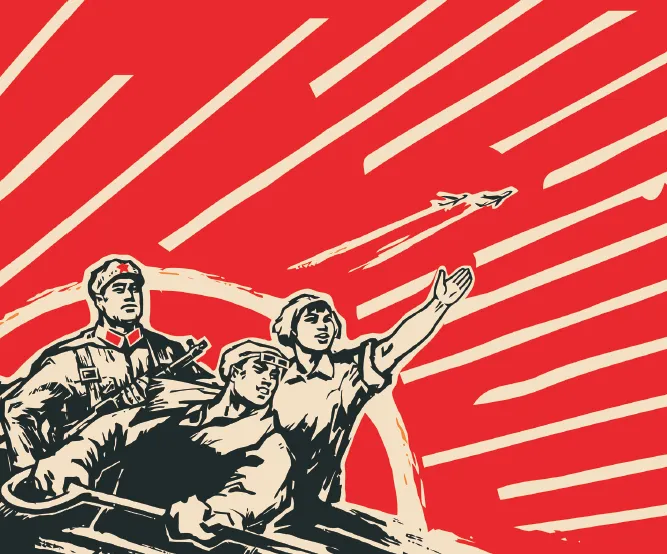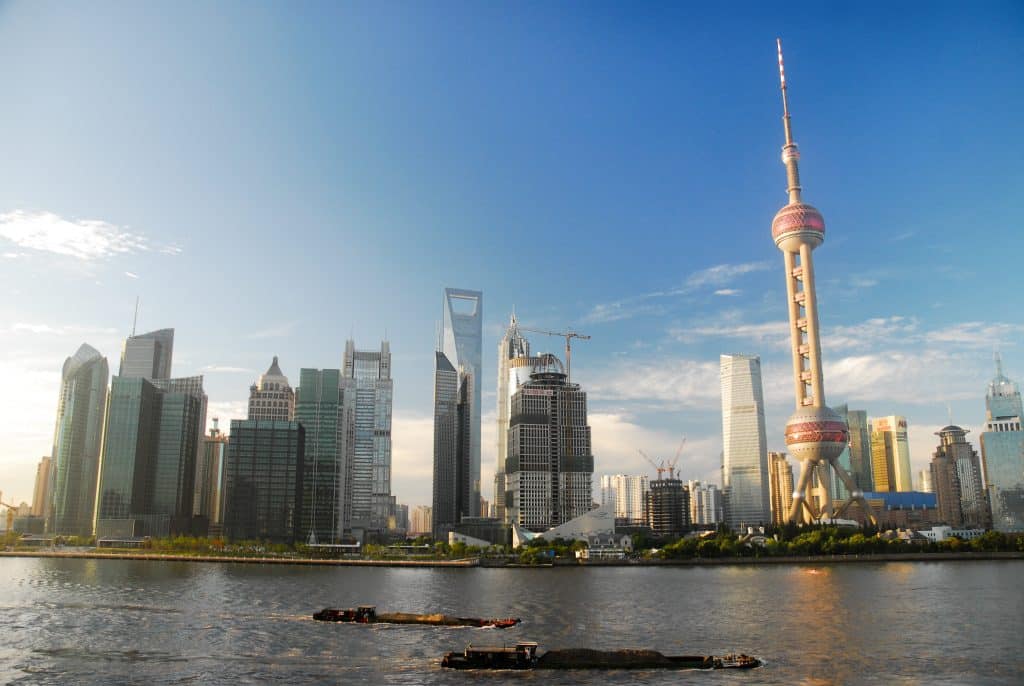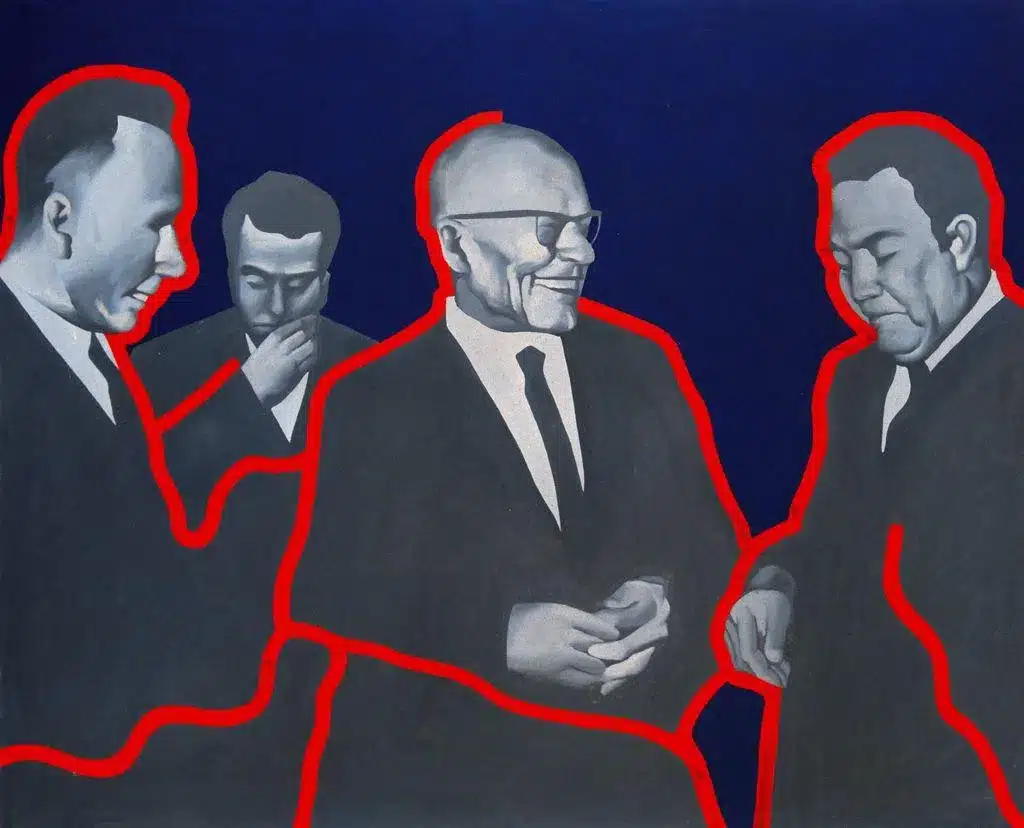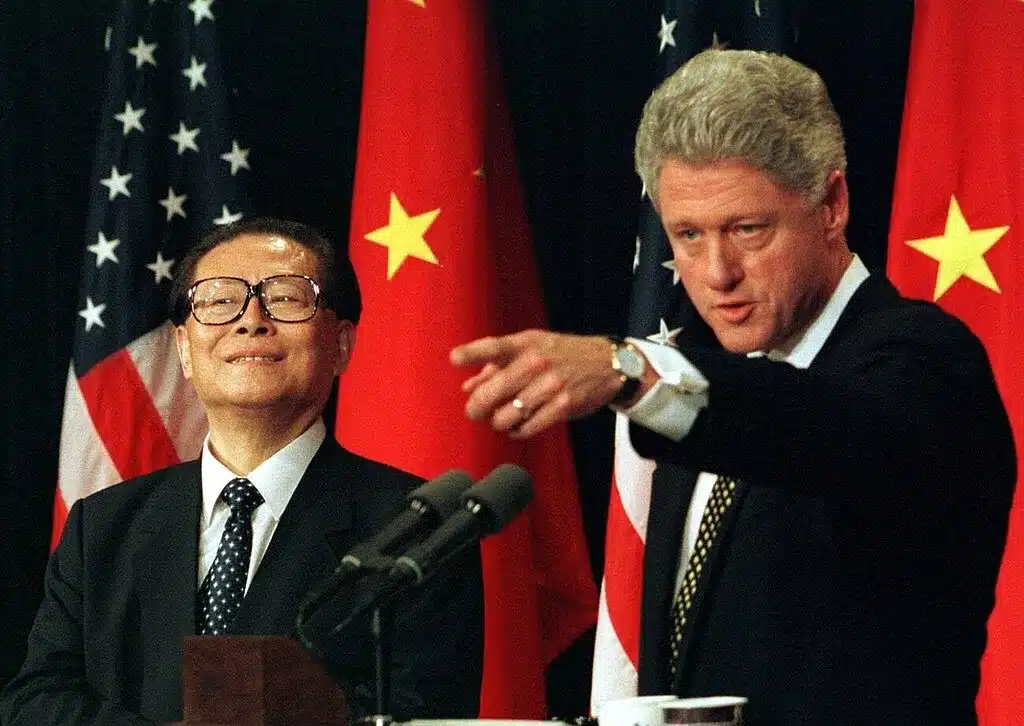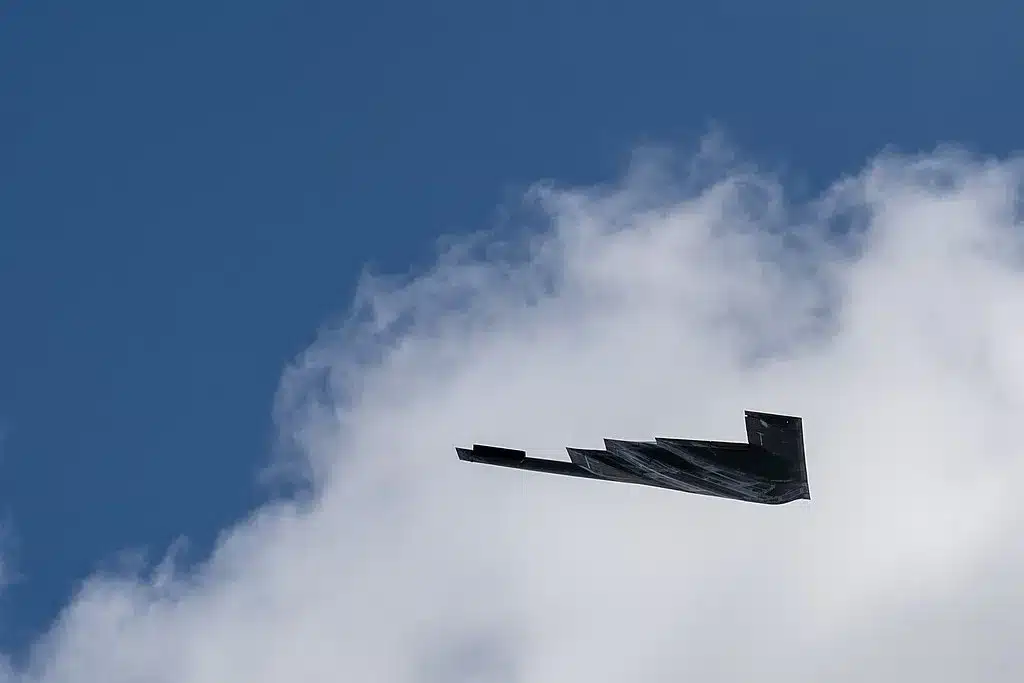Dr. Steve Tsang on His New Book: The Political Thought of Xi Jinping
- Interviews
 Miranda Wilson
Miranda Wilson- 01/10/2024
- 0
Dr. Steve Tsang is a Hong Kong-born political scientist and historian whose expertise includes politics and governance in China, Taiwan and Hong Kong, the foreign and security policies of China and Taiwan, and peace and security in East Asia. He is the current Director of the SOAS China Institute at the SOAS University of London.
On January 9th, his new book, The Political Thought of Xi Jinping, was released. The U.S.-China Perception Monitor interviewed Dr. Tsang about his motivations behind writing the book, how Xi Jinping compares to his predecessors, Xi Jinping’s goals for U.S.-China relations, the Taiwan issue, and more.
What inspired you to write The Political Thought of Xi Jinping? What were your main motivations for writing the book?
The inspiration was quite simply the realization that Xi Jinping was not going to go away at the end of his second term of office, and he was going to make his thought, whatever that was, the new ideology for China. When he decided in 2017 at the 19th Party Congress to introduce Xi Jinping Thought on socialism with Chinese characteristics for a new era, it was clear to me that it was not a vanity project in the way that Jiang Zemin’s “Three Represents” or Hu Jintao’s “Scientific Outlook” were. He meant something much more systematic, and therefore, potentially a new interpretation of what Chinese socialism means. Now, if that is the case, then I think we absolutely need to know what Xi Jinping’s thought is and what it is not. Hence the book.
You commented on Jiang Zemin’s “Three Represents” and Hu Jintao’s “Scientific Outlook” – could you say a little bit more about the difference between Xi Jinping and his two predecessors?
Chinese leaders have the tendency to make ideological additions to the previous ideology, which is some variance of something that you would call Chinese socialism or socialism with Chinese characteristics. Whether it was Jiang Zemin’s “Three Represents”, or Hu Jintao’s “Scientific Outlook”, they were really just trying to justify being able to say that they added something ideological to the body politics of Chinese citizenry. They were not providing a comprehensive reinterpretation of what Chinese socialism as a whole means. That is the difference between Hu Jintao and Xi Jinping. Hu Jintao or for that matter Jiang Zemin never claimed to have provided a new interpretation of Chinese socialism. Xi Jinping is effectively making such a claim.
What does that new interpretation look like?
If we use the language of the digital era, the political system is a Leninist Party system which is the “hardware.” That has not changed from the days of Mao Zedong, to Deng Xiaoping, to Xi Jinping. But what has changed is the “operating system” that makes the system work – that makes the hardware work. In this conceptualization, Mao Zedong was “Operating System One”, with various updates until he died in 1976. When Deng Xiaoping became the new leader of China from December 1978 onwards, with his Reform and Opening Up program, he effectively replaced the operating system from OS1 to OS2. Jiang Zemin and Hu Jintao era introduced various upgrades to Operating System 2.0 to OS 2.01 and OS 2.02.
Xi Jinping effectively introduced Operating System Three to replace Deng Xiaoping’s Reform and Opening Up, or Operating System 2.0. This is what we are really looking at – Operating System 3.0 or Xi Jinping Thought. Xi Jinping is trying to make China into one country with one patriotic people who all share the same basic outlook, guided by one ideology: Xi Jinping Thought. Governed by one party, which is the Communist Party of China, and led by one leader, Xi Jinping. The whole idea of this new approach is to “make China great again”, which in Xi Jinping’s words is to secure the China dream of national rejuvenation. That is basically what Xi Jinping Thought is in a nutshell.
I wanted to ask you more about Xi Jinping’s decision to serve more than two terms. In your book, you refer to him as a “leader for life.” How does that play into his new strategy, and why is the extension of his term so important to accomplish his goals?
Because Xi Jinping sees his life as a life with a mission. His mission is to make China great again, something that requires a leader with a vision. Therefore, having his own thought being put forth confirms that he’s a leader with a vision. When you are a leader with a vision and a mission, then you have a higher obligation than following something like term limits. Xi Jinping has dedicated his life to making China great again. So he must do it for as long as he is able to do it. This also comes back to the formulation of one country, one people, one ideology, one party, one leader. It means that when we look at China, with the Communist Party and Xi Jinping as its core leader, we really are looking at concentric circles. The core is the Communist Party, and the Communist Party controls and leads everything in China. It also means when a terms like “national interest” is being used, its referring to the interest of the Communist Party. It refers to the interest of the core – the supreme leader Xi himself. They basically exist in concentric circles.
What is the public perception of Xi Jinping in this current time – after COVID and with the extension of his term? How do people in China feel about him? Is there general consensus or are there different factions of public opinion?
From a purely hypothetical standpoint, if we go back to just before the pandemic in China, say 2019, if China were to have an open, fair, general election, there’s very little doubt, at least in my mind, that Xi Jinping would’ve won with a landslide. Now, I wouldn’t say necessarily the same thing if there were to be a free, open, and fair election. Certainly not within the Communist Party of China, even in 2019, because by then the party leadership already knew Xi Jinping’s ambitions. Those ambitions would mean restructuring a lot of the practices or political conventions that were built up under Deng Xiaoping, or Operating System 2.0. But the general public didn’t quite see that. They saw a strong leader who was promising them, not only to make China more wealthy, but to make China strong, powerful, and make the people of China proud of being Chinese. A leader who was, albeit slightly slowing down the economy, still leading an economy that was growing steadily and able to improve people’s living conditions.
Since COVID, based on the protests that resulted in the ending of the zero-COVID policy in November and December 2022, there has been a lot of unhappiness with the way the government was managing the zero-COVID policy. In fact, more generally, the discontent about the zero-COVID policy was not something that suddenly came up after the 20th Party Congress of November in 2022. Even before that, it was clear that some of the people within the party establishment and the medical field were taking the view that zero-COVID would not work.
It was equally clear at the 20th Party Congress that Xi Jinping’s commitment to zero-COVID was unchanged, and any thought that zero-COVID would be abandoned after the Party Congress was wrong. That renewed commitment was clearly articulated; yet, within a few weeks, there were public protests against zero-COVID. The first reaction by Xi Jinping was to repress the protests, until he saw a small number of people protesting with blank papers. When Xi Jinping saw the blank papers, everything changed, and the zero-COVID policy was reversed. Why?
Because the blank paper protest was something that citizens of Beijing had copied from the protests in Hong Kong in 2019 and earlier. In the Hong Kong protests, it was clearly a demonstration saying, “We are unhappy, but we can’t say what we want to say.” Hence the blank papers. “Saying something will get us into trouble, but blank paper says nothing.” That’s a powerful message for Xi Jinping to see – it was not something he could tolerate. When he saw the blank paper protest, he saw that it could potentially be the beginning of other protests, and he would have to suppress those. But he also saw a need to remove the basic source of that protest, which was the zero-COVID policy.
Suddenly, you had a situation where the Communist Party did something which is not always in line with the way how the Communist Party behaves. The Communist Party is always about planning and control. The reversal of zero-COVID was implemented with no planning, and it meant the Party lost control. We don’t know exactly how many people died, but we’re talking about at least hundreds of thousands, and probably millions of people died when the zero-COVID policy was being reversed. That happened tells you how Operating System 3.0 works: people were uncomfortable about his policies, and he saw a need to act on it. I think, for us, that should be sufficient evidence to show that people in China have become a lot more uncomfortable and unhappy with the leadership of Xi Jinping than before the COVID pandemic.
Do you think younger people in China are the ones who are more disillusioned and unhappy? Is there a generational difference?
What we have to keep in mind is that youth unemployment has hit a very high level since the end of the Maoist era, which is why earlier this year, the Communist Party suddenly decided to classify statistics about youth unemployment. When you have a very significant level of youth unemployment, it’s easy to understand why young people are unhappy.
On the other hand, the older generations grew up at a time when the Chinese economy was expanding nearly 10% per year. The older generations moved from the 1980s, when the Chinese economy resembled the economy of North Korea today, to the Chinese economy that we have today. From the 80s to now, people went from starving to being able to live in a comfortable apartment with excess availability of fatty food. They have to face the problem of obesity when they were previously facing malnourishment. The generations of older people are not quite as unhappy about things.
If you’re talking about the higher end of the older generations, you’re talking about people who lived through the Cultural Revolution, and in some cases the Great Leap Forward, when something like over 40 million Chinese citizens died of starvation. For those people, for all the problems that might be happening today, life is still a lot better than it was before.
The younger generations never lived through anything like that. Therefore, things are not looking as bright for them as for the older generations.
I’m glad you brought up the Cultural Revolution. I wanted to ask you about how that has influenced Xi Jinping’s leadership. Xi Jinping’s father was jailed and persecuted in Beijing before and during the Cultural Revolution. Do you think that that has impacted Xi Jinping’s leadership?
Well, the Cultural Revolution certainly has left its mark on Xi Jinping, but not quite in the way that you are putting it. Xi Jinping was born a so-called Red Princeling. His father was a senior leader in the Communist Party revolutionary movement who survived and became a Vice Premier under Mao. He was a very senior figure, and on the relatively more liberal side of the Communist Party in his orientation as well. He certainly suffered for what he was before and during the Cultural Revolution and as a result, Xi Jinping was sent down to the countryside as a teenager. Most of the so-called “sent down youth” had a very negative recollection of their time in the countryside.
Xi Jinping, in his own recollection, thought that the send down experience he had was a formative period for him. It was helpful in shaping how he sees things, how it makes him one of the people. So, he does not actually have a negative view of the Cultural Revolution. He has a positive view of the Cultural Revolution. He saw Mao Zedong as a figure who tried very hard to make China great again, but did not quite get there. Deng Xiaoping and his immediate successors Jiang Zemin and Hu Jintao were not taking China in the right direction, even though they did deliver a lot of positives. Xi Jinping as the heir to the Maoist revolution is going to be the leader to take China back in the right direction. He’s not hesitant to revive Maoist methods or ideas if he thinks those are helpful. He’s not doing a full scale restoration of the Maoist era or Maoist concepts, but he’s intensely comfortable revitalizing some Maoist methods.
What might some of those methods be?
Well, one of the Maoist concepts that Xi Jinping uses quite a lot is the Maoist idea of the mass line. The mass line is also described as, “From the masses and to the masses.” It works like this: the Communist Party as the Vanguard party will go out and listen to what people have to say – collect and collate all the views of the people. Then, the Party will draw on those ideas and see how their policies can be presented in a way to make it appear the Party has listened to the people. The Party will develop a propaganda line that makes people believe what the Party says is really the best way of implementing their wishes. This is something that Xi Jinping does a lot.
There is also the concept of the united front, which Mao Zedong describe as one of the three magic weapons that enabled the Communist Party to seize power. The united front is fundamentally a system of distinguishing friends from enemies. In the simplest explanation, imagine that you are in a single, closed room and in the room there is an oblong conference table. That’s the world. At one end of the table, you have China or the Communist Party. At the other end, the far end of the oblong table, is whatever China would define as the principal contradiction. In between you have the intermediate zones. Of the intermediate zones, you have three main groups. You have the group nearest to China – China’s natural friends and allies. The second group sits at the other side of the table – the allies and friends of the principal contradiction. The third group sits right in the middle – the wavering middle, the undecided. China, or the Communist Party, tries to win over as many as possible of the wavering middle, and tries to neutralize some of those on the enemy side, so that they are less united in supporting the principal contradiction.
With this methodology, China will triumph with the support of the majority of the wavering middle against the principal contradiction. Once the principal contradiction or the enemy has been languished, the Party will elevate from the former allies and friends of the primary contradiction a new primary contradiction or enemy, and repeat that process until the whole room, or everyone around that oblong table, are all friends of China. Then united front has completed its mission, and the Party will have prevailed.
Who is sitting at the other end of the table right now?
Washington.
And who would you say are the people sitting closest to China, and who’s sitting closest to Washington?
Well, the western democracies in North America and in Western Europe clearly are those that will be identified as friends of Washington… and Japan and Australia would be included as well. Pakistan, Russia, Iran, and a few others would be the close friends of China. The so-called “Global South” is the wavering middle, which are the countries China is focused on cultivating at the moment.
Speaking of China’s relationship with the U.S. – what do you think Xi Jinping’s goal is in terms of Sino-American relations? Does China want to surpass America as a global leader? In your view, what does the Sino-American competition look like?
Xi Jinping often actually tells you what he really thinks. Xi Jinping said that he’s not interested in competing against the United States. He does not aim to make China replace the United States. What he didn’t say is that he wishes to maintain the current liberal international order. He’s certainly not trying to compete against the U.S. or replace the U.S. in the current liberal international order, which was created at the end of the Second World War, and since then has been led by and dominated by the U.S. Xi Jinping thinks the liberal international order is fundamentally not a good and appropriate one for the world; the world needs an alternative to the liberal international order.
This is based fundamentally on Xi Jinping’s understanding and reconstruction of an old Chinese idea called tianxia. Now tianxia literally means, “sky and below,” so it’s all under heaven. This is what Xi believes to be the international order in the past when China was the dominant power in the world that matters, countries within reach of Chinese power. It was a kind of Pax Sinica, with China being the most powerful, rich, advanced and magnificent power, one that others want to imitate, learn from or respect and admire. When other countries admire China, learn from China, follow China’s model, or draw lessons from China, which China would dispense with magnanimity, then peace is in place, and there will be no need for China to use force against any of them. Is that not a wonderfully fantastic order for the world?
That is what Xi Jinping would like to see. Where America will need to fit in there… well, that’s up to the Americans, isn’t it? As long the Americans have the good sense and wisdom to realize that the Chinese model is superior, and embrace the leadership of China under Xi Jinping, then peace will prevail. Why would there be a second Cold War?
To wrap up – I did want to ask your opinion on the Taiwan situation. Do you think Xi Jinping will use force to unify Taiwan?
As I’ve said, Xi Jinping’s ultimate goal is the fulfillment of the China dream of national rejuvenation. The Chinese dream cannot be fulfilled without China or the Communist Party taking Taiwan. They would prefer that Taiwan simply accept a peaceful resolution. A “peaceful resolution” is simply that Taipei accepts the terms that Beijing lays down for Taiwan to “rejoin” China. If Taipei accepts, force won’t need to be used. But if the Taiwanese are not wise enough to do so, then Xi Jinping will do whatever it takes.
We need to be thinking about three things. One is the longstanding rhetoric that Taiwan is a sacred part of China, and therefore, it must be part of China again. It makes it very difficult, not impossible, but very difficult for the Party to back out of that sort of statement.
Second, Taiwan is geographically right in the middle of the Chinese strategic concept called the First Island Chain. If the Chinese military takes over Taiwan, the First Island Chain is secure and the entire Chinese eastern seaboard is secure. With the First Island Chain in Chinese control, the military will be able to project power into the Second Island Chain, which would divide the Pacific Ocean into two: the American eastern side and the Chinese western side. Incidentally, Xi Jinping articulated this implicitly when he met with President Obama in California in 2013. He said, “The Pacific Ocean is very big, it’s big enough for two.” He just didn’t spell out what he meant by, “Big enough for two.”
Third, the American Taiwan Relations Act. There is a legal obligation on the U.S. government to consider how to help Taiwan maintain their own self-defense against an external force requiring exchange of status. That means China.
Taiwan is geo-strategically important both to China and the United States. The Chinese know perfectly well if they invaded Taiwan, they would have to deter the Americans from interfering, in which case Taiwan could be forced to surrender.
If that that happened, the strategic balance of power in the entire Indo-Pacific would change. If American did not come to the defense of Taiwan, neither Japan nor Korea could still count on the mutual defense treaties they have with the United States. If the Americans cannot adhere to a legal agreement with Taiwan, how can they rely on the Americans to honor their treaty obligations? The entire block of 10 nations in ASEAN in the Indo-Pacific will agree to deals with China because they know they can’t count on Uncle Sam to help them. Suddenly, American power would effectively lose credibility in the entire Indo-Pacific region.
Taiwan becomes an issue that I think is critically important for us to preempt from getting to that point. If we allow the Taiwan issue to reach a point where the U.S. and China have to consider using force, we are looking at a very, very, very dangerous scenario.
My last and most important question is, where can people find your book?
The book was released by Oxford University Press on January 9th, 2024. It is available in all bookstores, physical or online. You can purchase the book on the OUP website directly and use the discount code ASFLYQ6 for 30% off.

